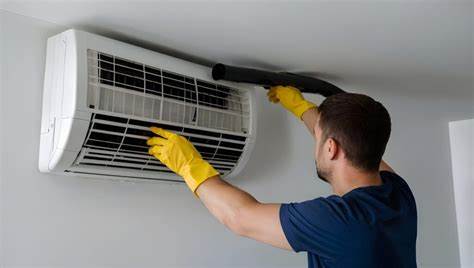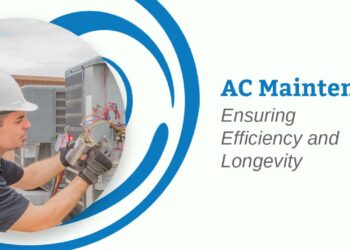
AC maintenance plays a critical role in ensuring your cooling system operates at its best. Neglecting this crucial task can lead to costly consequences. Let's delve into the world of AC maintenance and explore why it's essential for the longevity of your unit.
Regular maintenance not only enhances performance but also helps in detecting issues early, saving you from potential breakdowns and costly repairs.
Importance of AC Maintenance
Regular AC maintenance is essential to ensure optimal performance and efficiency of your air conditioning unit. By scheduling routine maintenance, you can prevent potential issues before they escalate into costly repairs.
Consequences of Neglecting AC Maintenance
Neglecting AC maintenance can lead to a range of consequences, including decreased cooling efficiency, higher energy bills, poor indoor air quality, and even system breakdowns during peak usage times.
How AC Maintenance Prolongs Lifespan
Proper AC maintenance can help in prolonging the lifespan of your unit by ensuring all components are functioning correctly, reducing strain on the system, and preventing premature wear and tear. This can ultimately save you money in the long run by avoiding the need for premature replacements.
DIY AC Maintenance Tips
Regular maintenance of your AC unit is crucial to ensure its optimal performance and longevity. By following some simple do-it-yourself tips, you can keep your air conditioner running smoothly and efficiently.
Cleaning or Replacing AC Filters
One of the most important maintenance tasks for your AC unit is cleaning or replacing the filters regularly. Clogged or dirty filters can restrict airflow, reducing the efficiency of the system and causing it to work harder. Here's how you can clean or replace the filters:
- Turn off the power to the AC unit.
- Locate the filters - they are usually found in the return air duct or the air handler unit.
- If the filters are reusable, clean them with a vacuum or wash them with soap and water. Let them dry completely before reinstalling.
- If the filters are disposable, make sure to replace them with the correct size and type recommended by the manufacturer.
- Regularly check the filters every 1-3 months and clean or replace them as needed.
Checking and Cleaning AC Coils
Another important maintenance task is checking and cleaning the AC coils to ensure proper heat transfer. Over time, dirt and debris can accumulate on the coils, affecting the cooling process. Here's how you can effectively clean the coils:
- Turn off the power to the AC unit.
- Locate the evaporator and condenser coils - they are usually found inside the air handler unit and outside the AC unit.
- Use a soft brush or vacuum to gently clean the coils and remove any dirt or debris.
- You can also use a coil cleaner spray for more thorough cleaning, following the manufacturer's instructions.
- Regularly check and clean the coils every 6-12 months to maintain optimal performance.
Maintaining Proper Refrigerant Levels
Ensuring proper refrigerant levels in your AC unit is essential for efficient cooling
. Low refrigerant levels can lead to poor performance and potential damage to the compressor. Here's how you can maintain the refrigerant levels:
- Monitor the refrigerant levels regularly and look for any signs of leaks, such as hissing sounds or ice buildup on the coils.
- If you suspect a refrigerant leak, contact a professional HVAC technician to locate and repair the leak before adding more refrigerant.
- Only certified technicians should handle refrigerant refills to prevent any safety hazards or damage to the unit.
Signs Your AC Needs Maintenance
If your air conditioner is showing signs of wear and tear, it may be time for some maintenance to keep it running smoothly. Here are some common signs that indicate your AC needs attention:
Unusual Sounds
If you start hearing strange noises coming from your AC unit, such as grinding, squealing, or banging, it could be a sign that something is not right. These sounds may indicate issues with the fan belt, motor bearings, or other internal components that need to be addressed promptly.
Strange Odors
Unpleasant odors coming from your air conditioner can be a red flag for mold or mildew growth inside the unit. Musty or foul smells when the AC is running could also signal a clogged drain line or dirty filters. It's essential to address these odors to prevent poor indoor air quality and potential health issues.
Poor Airflow
If you notice a decrease in airflow from your vents, it could be a sign of clogged air filters, ductwork issues, or a failing blower motor. Poor airflow can lead to uneven cooling in your home and put added strain on your AC system, reducing its efficiency.
Regular maintenance can help improve airflow and prevent further damage to your unit.
Professional AC Maintenance Services
When it comes to maintaining your AC system, hiring a professional service can offer several advantages over attempting to do it yourself. Let's explore the different types of professional AC maintenance services available, the benefits of hiring a professional, and what you can expect during a routine maintenance service.
Types of Professional AC Maintenance Services
Professional AC maintenance services can vary depending on the provider, but some common types include:
- Regular maintenance check-ups
- Cleaning and replacing filters
- Inspecting and repairing ductwork
- Checking refrigerant levels
- Calibrating thermostats
Benefits of Hiring a Professional
There are several benefits to hiring a professional for AC maintenance, including:
- Expertise: Professionals have the knowledge and experience to properly assess and address any issues with your AC system.
- Time-saving: Hiring a professional can save you time and effort, as they can quickly and efficiently perform maintenance tasks.
- Longevity: Regular professional maintenance can prolong the life of your AC system, saving you money on repairs and replacements in the long run.
- Safety: Professionals can ensure that your AC system is running safely and efficiently, reducing the risk of malfunctions or accidents.
What to Expect During a Routine Maintenance Service
During a routine AC maintenance service, a professional technician will typically:
- Inspect the entire system for any signs of wear or damage.
- Clean and replace filters to ensure proper airflow.
- Check refrigerant levels and top up if necessary.
- Inspect and clean the condenser and evaporator coils.
- Calibrate thermostats and test system performance.
Outcome Summary
In conclusion, prioritizing AC maintenance is the cornerstone of a well-functioning cooling system. By following these tips and understanding the signs of when maintenance is needed, you can ensure your AC unit runs smoothly for years to come.
User Queries
How often should I schedule AC maintenance?
It is recommended to have your AC unit serviced at least once a year to maintain optimal performance.
What are the consequences of neglecting AC maintenance?
Neglecting maintenance can lead to reduced efficiency, higher energy bills, and potential breakdowns.
How can I tell if my AC needs maintenance?
Look out for signs like reduced airflow, strange odors, or unusual sounds coming from the unit.
Is it necessary to hire a professional for AC maintenance?
While DIY maintenance is possible, professionals can ensure a thorough inspection and optimal performance of your AC unit.
 AC maintenance plays a critical role in ensuring your cooling system operates at its best. Neglecting this crucial task can lead to costly consequences. Let's delve into the world of AC maintenance and explore why it's essential for the longevity of your unit.
Regular maintenance not only enhances performance but also helps in detecting issues early, saving you from potential breakdowns and costly repairs.
AC maintenance plays a critical role in ensuring your cooling system operates at its best. Neglecting this crucial task can lead to costly consequences. Let's delve into the world of AC maintenance and explore why it's essential for the longevity of your unit.
Regular maintenance not only enhances performance but also helps in detecting issues early, saving you from potential breakdowns and costly repairs.











